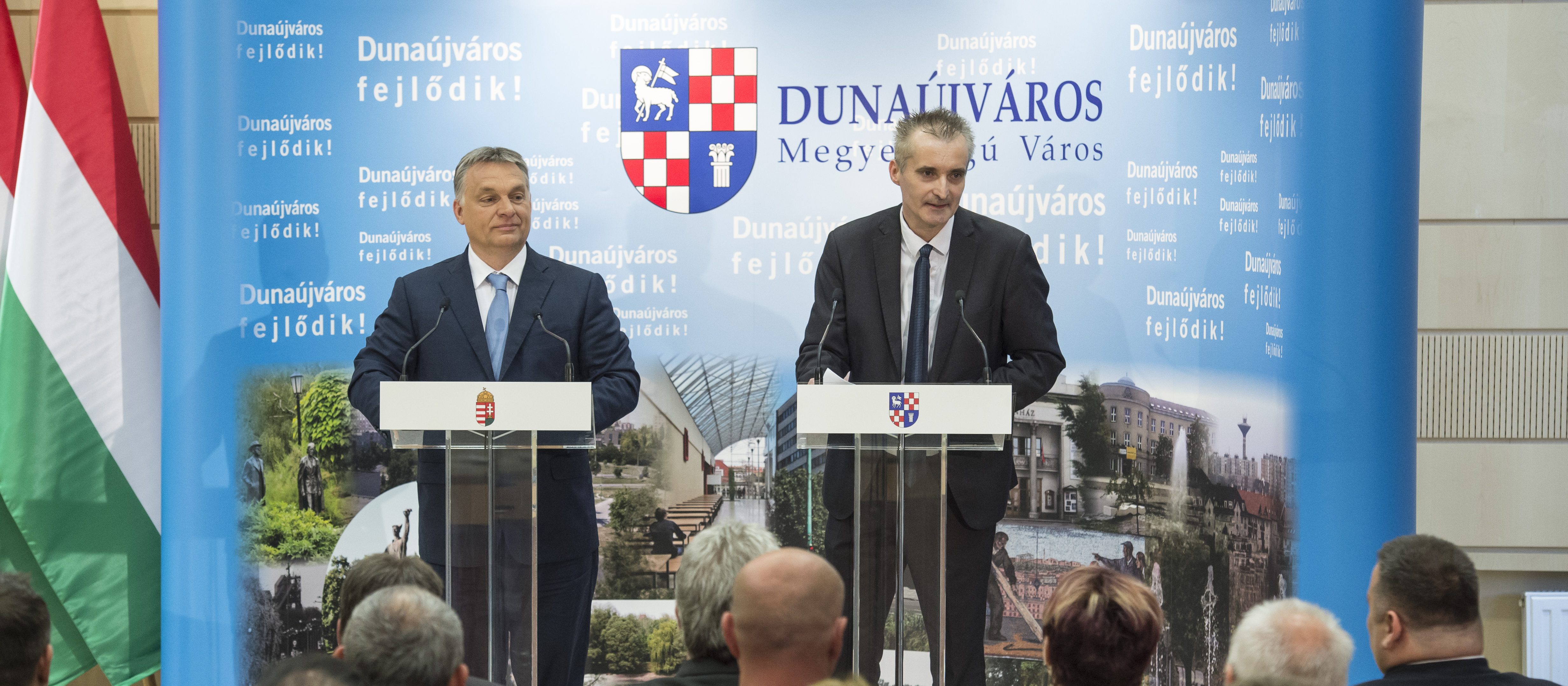
The Prime Minister pointed out that if those living in the city had been asked fifteen to twenty years ago how this settlement could turn into a modern city, many would not have bet on a successful outcome as unemployment was way above ten per cent and there was a general state of depression in the settlement. “A great deal has happened since, and as prime minister I myself have had the opportunity to work for reviving this city in the past eight years. This city now has a future, it is no longer a former socialist industrial town, but a modern European settlement with great opportunities”, he added.
Mr Orbán took the view that it is not easy to transform any settlement into a modern European city, but in this respect former large socialist industrial towns have been faced with the most formidable challenge in the past twenty years: turning Dunaújváros into a modern European city is a taxing task for the locals, the city leadership and the government of the day equally. “If we look around this city and consider the developments that have been carried out, we have no reason to be ashamed”, he said.
The Prime Minister highlighted that the university played a major role in the advancement of the city. The leadership of the university is doing a good job: they recognised that the future lies in the training of engineers, this is what they built their future on, and this is their forte now, he said.
Mr Orbán stressed they had also fought a great deal for Dunaferr because former governments had sold the iron works. “In the past few years our job has been to fight for keeping jobs. We managed to overcome this danger, and we are now working on developments. There will be pay rises, there will be jobs, and so there will be a future; Dunaferr is a major success story”, he said.
The Prime Minister observed that the Paks project to be implemented in the vicinity of Dunaújváros will require supplies of steel, but at this point in time there is disagreement among experts as to whether the iron works would be able to supply adequate raw materials without further developments. He added that experts will discuss this issue among themselves, and if required the government will provide help.
At the meeting held with the mayor the parties discussed that the city needs a new industrial park which the Prime Minister fully supports.
Mr Orbán also highlighted that the campaign will be less about city developments than about the country’s security and future.
“I believe the number one priority is to protect the country because we may have splendid plans in vain, we may build swimming pools in vain, we may create jobs in Dunaferr and at other businesses settling into the city in vain; if we fail to protect the country, all those developments will be in vain”, he pointed out, highlighting that they will not allow Hungary to be turned into an immigrant country.
He stressed that we are facing this threat from two directions: on the one hand, from the south where “we must detain illegal migrants” with the fence which will be an ongoing struggle in the next decade or two, and on the other hand from the direction of the European Union because Brussels has now launched another attack. “They would like to adopt a final decision on the mandatory resettlement quotas by June, but in the first half of the year under any circumstances. For our part we would like to prevent this at any cost”, he said.
On Wednesday the Prime Minister had talks with leaders of the city and the region, including Member of Parliament Dénes Galambos, Gábor Cserna, Mayor of Dunaújváros and Lajos Dorkota, President of the Hungarian Energy and Public Utility Regulatory Authority. The meeting was also attended by Antal Rogán, the Prime Minister’s cabinet chief. Mr Orbán met with members of the local organisation of Fidesz, and later with the players of the ice hockey team Dunaújváros Steel Bulls, the newspaper reported.
